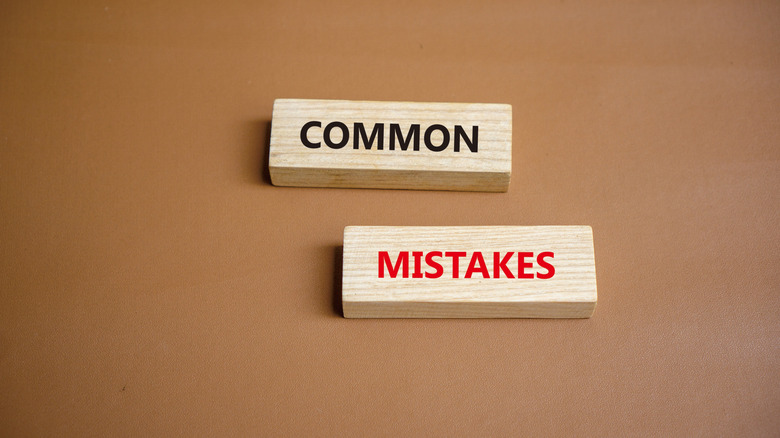The Great Wealth Transfer: What The Younger Generations Need To Know
The American consumer landscape is headed for a unique and impactful transformation in the coming decades. The Baby Boomer generation is aging into retirement, and this has led to a wave of consequences (some good and some bad) across the marketplace. The youngest Baby Boomers in 2025 are 61 (having been born in 1964), making them just one year away from being able to claim Social Security benefits early (starting at 62). This also means that they are, on average, less than two decades from the end of their life, with the CDC placing life expectancy for both men and women combined at 77.5 years.
Baby boomers have amassed a tremendous amount of collective wealth, and their assets run the gamut from real estate to investments to other valuables like jewelry, artwork, furniture, and even unique collectibles. When they ultimately pass, most will leave this wealth to their family, initiating what some are calling "the great wealth transfer." In this surge of moving capital, estimates suggest that a collective $72 trillion will be transferred from older Americans to Gen X and Millennials, giving younger Americans across the country an infusion of financial resources. We spoke with Aaron Cirksena, founder and CEO of MDRN Capital, to explore some of the most pressing questions associated with this changing of hands. He offered insight into some of the most important things that younger generations need to know ahead of any potential windfall of capital and coinciding loss of loved ones.
Managing a new inheritance
Many Americans might be in store for a larger inheritance than they initially expected. While some reports suggest that many Americans struggle to find a financial balance during retirement, those who've invested diligently — and follow conservative drawdown strategies like the 4% retirement savings rule – can expect their money to outlive them. For some, this amount can be quite a large sum, leaving those who inherit that money with some important questions to ask. Aaron Cirksena suggests prioritizing safety, especially in the beginning of the process. "Keep the money in a safe, liquid account, like a high-yield savings account or short-term Treasury bills, while you assess your situation," he said, before adding, "You want to avoid making impulse decisions that could have long-term consequences."
Cirksena went on to explain later steps, "When you have a clear understanding of taxes and your financial goals, then start on a diversified investment strategy that fits your risk tolerance and timeline (a mix of stocks, bonds, real estate, or other assets). Paying off high-interest debt, setting up an estate plan, or considering charitable giving strategies can be smart long-term moves." Remaining cautious about your windfall is ultimately the best strategy you can deploy. For many inheritors, a large stockpile of assets might be an entirely new experience in their life. This, unfortunately, means that it can be easy to abuse your new cash infusion. However, staying conservative with you windfall is the much better financial decision.
Hiring a professional
While involving a professional financial planner in your inheritance tasks can be a useful approach, Aaron Cirksena told us that not everyone needs to go that route. For straightforward inheritance situations, asking for professional help might actually be overdoing it. However, Cirksena did explain that calling in additional support can be the right decision especially "if the inheritance is significant." He went on to say that personal finance professionals "can help structure your investments, an estate attorney makes sure your assets are set up properly for the next generation, and a tax specialist can help you avoid liabilities."
These are all important facets of any inheritance considerations. The trouble that some people face isn't a lack of desire for a smart investment or savings strategy, but rather a lack of knowledge. If you're unsure about how to manage the inheritance you've received (or will receive in the future), speaking with a professional about your options is an important step. A personal finance professional can also help you formulate a few strategies to reduce your tax burden, invest in growth assets for your retirement, or even leverage some of your new funds to improve your life in the present.
Mistakes to avoid
One of the most important aspects of an inheritance is your plan for the money and/or assets. Aaron Cirksena notes that "not having a plan" is at the top of his list of mistakes. "People assume they'll know what to do when the money comes in," he says, "but without financial literacy, it's easy to overspend, make bad investments, or get bad advice." This is where many of the problems occur in sudden financial windfalls. The sheer amount of options available to an inheritor receiving a large infusion of cash can easily lead to an overextension, especially if that inheritor is operating without any kind of guiding framework.
Other mistakes that Cirksena sees are "underestimating the tax impact which can cause a big loss of your inheritance unnecessarily. Also, not talking to family members about expectations can create problems," he adds. Both of these points can be tremendously important. For starters, if you owe a large tax bill after an inheritance, failing to account for that obligation could leave you in a major financial hole for months or even years to come. Similarly, failing to properly plan alongside other family members can leave important assets like a family home or sentimental heirlooms in a state of limbo that can hurt everyone involved and lead to long-term familial consequences.
Preparing your wealth
Aaron Cirksena also offered some crucial wisdom to those who might eventually find themselves on the other side of their inheritance. "A will is important," he says, "but you should also have a comprehensive estate plan, which might include trusts, power of attorney designations, and healthcare directives." These are important steps to take if you're a senior today existing on the giving end of the great wealth transfer. Putting your priorities and wishes in writing and talking to your loved ones about what you want done with your assets and health care decisions is crucial to living the rest of your life with dignity and happiness. Cirksena notes that communication is key: "Communicate with your beneficiaries. If they don't understand your financial values and intentions, they're more likely to mismanage the money or end up in disputes."
This is also important for recipients, too. If you're a diligent saver taking steps to prepare for your own retirement, a major cash infusion could ultimately set you up to pass on significant wealth down the line. Cirksena noted, "Trusts can help minimize estate taxes, protect assets from creditors, and make sure your heirs receive wealth in a structured way." Rather than just passing on wealth, utilizing a trust can provide a foundation for that wealth to remain protected and grow over a period that's much longer than just one lifetime.




